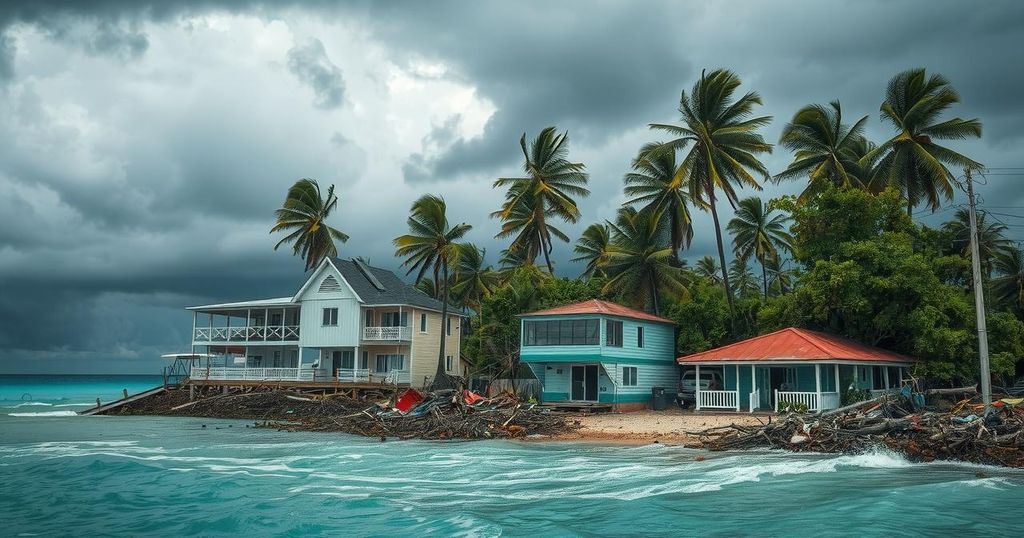Tropical Cyclone Chido: A Historic Disaster for Mayotte as Recovery Efforts Begin
On December 14, 2024, Tropical Cyclone Chido made landfall in Mayotte, causing 22 deaths and injuring 1,500 individuals. It is the strongest storm to affect the region in over 90 years, causing extensive damage to infrastructure and services. Approximately 40% of residential structures were already in precarious condition, leaving one-third of Mayotte’s population vulnerable. Search and rescue efforts are ongoing as many individuals remain unaccounted for.
Tropical Cyclone Chido originated as a tropical depression on December 5, 2024, in the southeast Indian Ocean Basin. By December 9, it escalated into a moderate tropical storm with winds reaching 70 km/h, subsequently peaking on December 12 as a Category 4 cyclone, recording sustained winds of 250 km/h. On December 14, Cyclone Chido made landfall in Mayotte with winds of 225 km/h, marking the strongest storm to affect the region in over nine decades.
As of December 18, the cyclone had caused at least 22 fatalities and injured approximately 1,500 individuals, with reports suggesting that this figure could increase as search and rescue operations unfold due to many individuals still being unaccounted for. In addition to human casualties, Chido inflicted extensive damage to vital infrastructure in Mayotte, including hospitals, the airport, and road networks, while also disrupting services such as electricity, water, and communications.
Prior to the cyclone’s arrival, around 40% of residential buildings in Mayotte were already considered precarious, exacerbating the destruction wrought by the storm. Approximately 100,000 individuals resided in these vulnerable structures, which constitutes about one-third of Mayotte’s population. While the official population stands at approximately 320,000, authorities estimate an additional 200,000 individuals may be residing in the region, many of whom are migrants from the nearby island of Comoros.
Tropical Cyclone Chido represents a significant climatic event, distinguished by its remarkable strength and devastating impact on Mayotte, a French island in the Indian Ocean. Understanding the context of Chido’s development is crucial; it escalated rapidly, marking a rare occurrence of such intensity in the region’s recent history. The cyclone not only intensified concerns regarding local infrastructure vulnerabilities but also highlighted the socio-economic conditions affecting Mayotte’s population, which includes many migrants lacking formal status. The cyclone’s aftermath raises critical questions pertaining to disaster response and recovery efforts.
In conclusion, Tropical Cyclone Chido has presented unprecedented challenges for Mayotte, resulting in loss of life, widespread injuries, and significant infrastructure damage. The resilience of the local communities is being tested as rescue operations continue amidst ongoing concerns regarding the structural integrity of housing and public services. Continuous monitoring and support will be essential as authorities assess the long-term implications of this disaster on the population and local economy.
Original Source: reliefweb.int




Post Comment